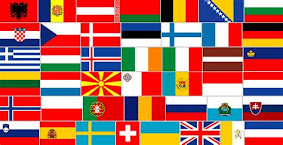Still, you have to say something more definite than "whatever" about what you're doing. I suppose that's one reason this website bills itself as "an online magazine of radical traditionalism."
That description suggests one understanding of the alternative right. On the other hand, the Executive Editor is also happy with this description:
"Alt Right was designed to appeal to a younger audience who reject the Left, but who don’t fit in on the stuffy or banal Right either.
"The 'post-paleos' tend to be more secular than their predecessors. They are more willing to challenge multiculturalism and political correctness; more libertarian on economic and gender issues; more opposed to third world immigration and affirmative action; more interested in men’s issues; more willing to flaunt [sic] racial taboos."
Another writer explaining the "alternative right" on this site emphasizes the impossibility of conservatism in the present situation (he certainly has a point).
None of that seems to have much to do with traditionalism, so the situation presents puzzles and challenges as well as opportunities.
Willingness to talk about issues nobody wants to talk about is certainly indispensable. In America today you can't talk rationally and concretely about issues that are as basic and pressing as immigration. If you do you don't stay respectable.
So discussion of difficult topics is an opportunity this site offers. On the other hand, there are reasons for the near-impossibility of discussion apart from Leftists being bad, stupid, irrational, self-interested, well-placed, and well-funded.
My recent entry on Inclusiveness and Thought Control was to some degree a "bash the Left" piece: inclusiveness, thought control, and the Left are all one big horrible package.
The substantive message, though, was that what's behind the package--which all educated people today are trained to buy into--is the current understanding of what's rational and real.
On that understanding, what's rational is getting what you want and what's real is atoms, the void, and technical expertise.
If that's so, then politics becomes a problem, because all you have is people trying to get stuff for themselves using all means available. You have the war of all against all.
Hence liberalism. Liberalism never exists pure, and it goes through various stages, but its enduring theoretical problem is getting people who at bottom are purely self-interested to get with the program, do productive work, and not murder each other.
Hence the tendency of modern politics to depend on some combination of force, fraud, and radical claims as to equality. Hence lots of other things too, for example the liberal attitude toward gun control and Tea Parties. Everything other than liberalism threatens to restore the reign of mindless greed, rage, and violence, because apart from liberalism that's all there is.
If we want something better we need a whole different basis for politics. That, I suppose, is what the "radical traditionalism" of the site is about. If modern science, equality, and getting what you want isn't enough for politics, then you need to look to something basically different, and tradition seems a candidate.
Whether that's the right candidate or not, we on the right need the vision thing, and we need it big. Secular libertarianism, breaking rules, asserting identities, and acting up don't seem likely to do the job. For something solid that will work and that people will adhere to we need more.
Earlier generations of intellectual conservatives, who talked about things like visions of order and the permanent things, failed. Their present-day successors keep on talking, keep on failing, and worry too much about respectability. Something else is evidently needed.
Still, their concerns are indispensable. Talking about Baron Evola is a start, but there are four traditional castes, and it seems unlikely the kshatriyas can save us without the priests.




























No comments:
Post a Comment
Your comment will appear after it has been checked for spam, trolling, and hate speech.